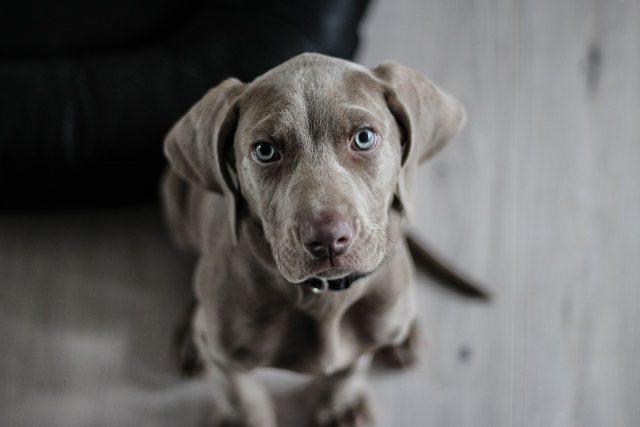Chewing is a natural behavior for dogs, but when it becomes destructive, particularly directed at your furniture, it can be frustrating and costly. Understanding how to stop your dog from chewing on furniture is crucial for maintaining a harmonious home environment and protecting your belongings. Addressing this issue effectively requires a combination of understanding the root causes, providing appropriate outlets for chewing, and implementing training techniques.
In this article, we will explore the best strategies to stop your dog from chewing on furniture, ensuring a more peaceful coexistence with your furry friend.

Introduction to How To Stop Your Dog From Chewing On Furniture
Chewing serves several purposes for dogs, including teething, exploring their environment, and relieving boredom or anxiety. However, when this behavior is directed at furniture, it can lead to significant damage and stress. Addressing this behavior is important not only to protect your home but also to ensure your dog’s well-being. By implementing effective strategies, you can stop your dog from chewing on furniture and encourage healthier behaviors. This article will provide a comprehensive guide on how to achieve this, covering everything from understanding the reasons behind chewing to practical solutions and training methods.
Discover The 10 Dog Breeds With A Habit Of Eating Bizarre Things
Understanding Why Dogs Chew on Furniture
To stop your dog from chewing on furniture, it’s essential to understand the underlying reasons behind this behavior. Common causes include:
- Teething: Puppies chew to alleviate the discomfort of teething.
- Exploration: Dogs explore their environment with their mouths.
- Boredom: Lack of mental or physical stimulation can lead to destructive chewing.
- Anxiety: Stress and anxiety, particularly separation anxiety, can trigger chewing as a coping mechanism.
- Attention-Seeking: Some dogs chew to gain attention from their owners.
Identifying the cause of your dog’s chewing can help you implement targeted strategies to address the behavior effectively.
Providing Appropriate Chew Toys
One of the best ways to stop your dog from chewing on furniture is to provide appropriate chew toys. Chew toys can satisfy your dog’s natural urge to chew while keeping them away from your furniture. Choose toys that are safe, durable, and suitable for your dog’s size and chewing strength. Rotate the toys regularly to keep your dog interested, and encourage their use by praising your dog when they chew on the toys instead of the furniture.
Using Deterrent Sprays
Deterrent sprays can be an effective tool to stop your dog from chewing on furniture. These sprays have an unpleasant taste that discourages dogs from chewing on treated surfaces. To use deterrent sprays effectively, apply them to the furniture and monitor your dog’s reaction. It may take a few applications for your dog to associate the unpleasant taste with the furniture, so be patient and consistent.
Training and Positive Reinforcement
Training and positive reinforcement are key strategies in stopping your dog from chewing on furniture. When you catch your dog chewing on furniture, redirect them to an appropriate chew toy and reward them when they use it. Use positive reinforcement techniques such as treats, praise, or playtime to reinforce good behavior. Consistency is crucial; ensure that everyone in the household follows the same training approach to avoid confusing your dog.
Ensuring Adequate Exercise and Mental Stimulation
Ensuring your dog receives adequate exercise and mental stimulation is essential in preventing destructive chewing. A tired dog is less likely to engage in unwanted behaviors. Incorporate daily walks, play sessions, and interactive toys to keep your dog physically and mentally engaged. Puzzle toys and training exercises can also help stimulate your dog’s mind, reducing the likelihood of boredom-induced chewing.
Managing Separation Anxiety
Separation anxiety is a common cause of destructive chewing. If your dog chews on furniture primarily when left alone, they may be experiencing separation anxiety. To address this, create a comfortable and safe space for your dog when you’re away, and gradually acclimate them to being alone. Providing toys, calming music, or interactive cameras can also help alleviate anxiety. In severe cases, consult with a veterinarian or a professional dog trainer for additional support.
Find Out Which 12 Breeds Love To Chew And Effective Solutions
Creating a Safe Space for Your Dog
Creating a designated safe space for your dog can help prevent them from chewing on furniture. A crate or a confined area with appropriate chew toys and bedding can provide a secure environment for your dog. Ensure that the space is comfortable and free from hazards. Using a safe space can be particularly helpful when you are unable to supervise your dog closely.
When to Seek Professional Help
While many dogs can be successfully trained to stop chewing on furniture with patience and consistency, some cases may require professional help. If your dog continues to chew on furniture despite your best efforts, or if you notice signs of severe anxiety or behavioral issues, it may be time to consult a professional dog trainer or a veterinarian. They can provide specialized guidance and develop a tailored plan to address your dog’s specific needs.
Learn Which Dog Toys Made Our Top 20 List For All Types Of Dogs
Conclusion: Stop Your Dog from Chewing Furniture Effectively
In conclusion, understanding how to stop your dog from chewing on furniture involves a combination of addressing the root causes, providing appropriate outlets for chewing, and consistent training. By implementing the strategies outlined in this article, you can effectively curb your dog’s destructive chewing behavior and foster a healthier, happier relationship with your pet. Remember, patience and consistency are key, and seeking professional help when necessary can ensure the best outcome for both you and your dog.

 Toledo, United States.
Toledo, United States.